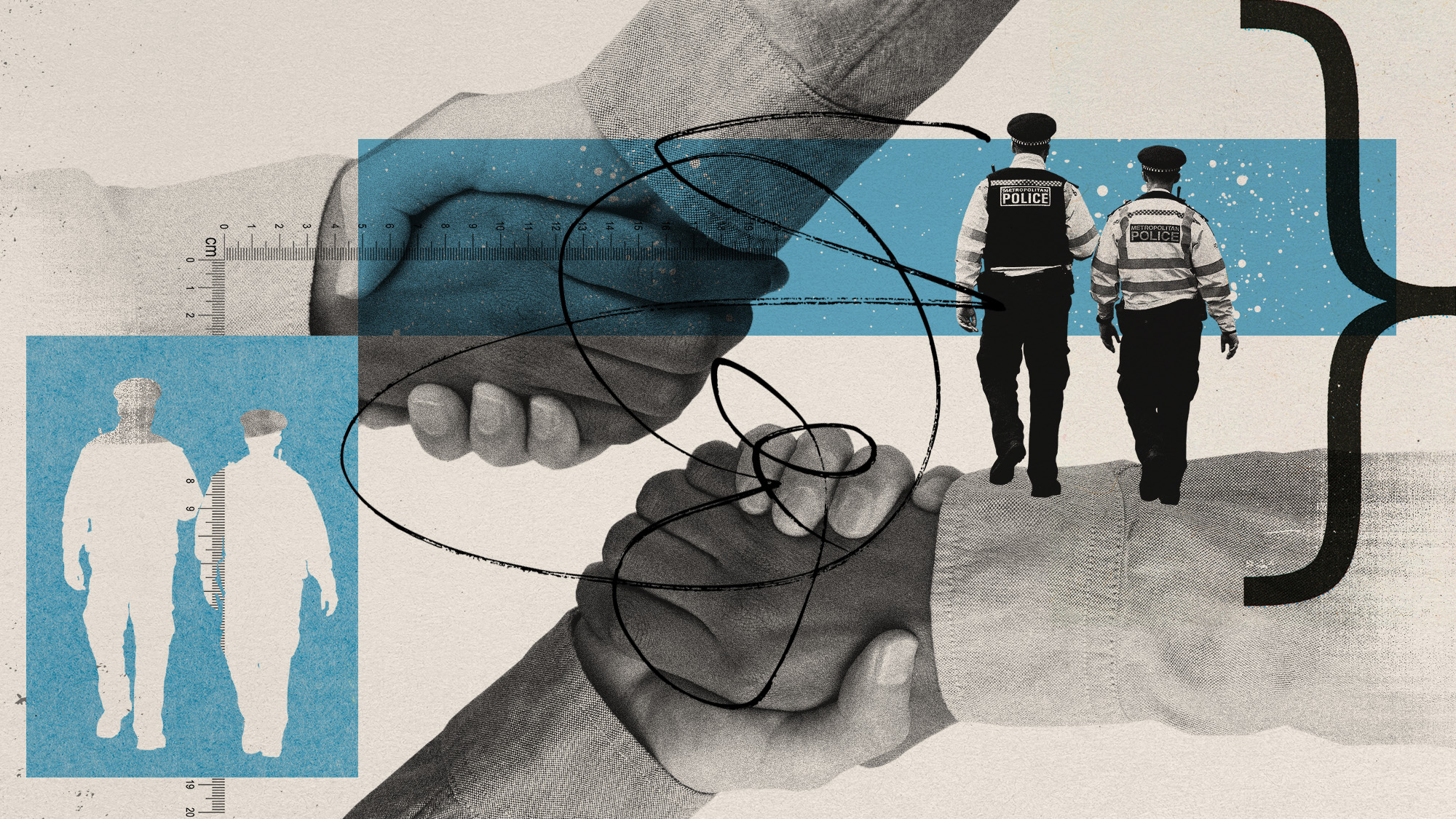How much influence do Freemasons have in the UK?
Metropolitan Police officers may be forced to declare membership of fraternal organisation, which has denied ‘pulling strings’ in public life

A free daily email with the biggest news stories of the day – and the best features from TheWeek.com
You are now subscribed
Your newsletter sign-up was successful
Metropolitan Police officers may have to tell their bosses if they are members of a Masonic lodge after the force launched a consultation on whether the Freemasons should be added to its “declarable associations” policy.
The consultation is in response to questions over whether membership of the secretive fraternal organisation could impact “investigations, promotions and misconduct”, Scotland Yard said.
There are around six million Freemasons globally, with 200,000 in England and Wales. Almost all of them are men, although there are two all-female orders.
The Week
Escape your echo chamber. Get the facts behind the news, plus analysis from multiple perspectives.

Sign up for The Week's Free Newsletters
From our morning news briefing to a weekly Good News Newsletter, get the best of The Week delivered directly to your inbox.
From our morning news briefing to a weekly Good News Newsletter, get the best of The Week delivered directly to your inbox.
What did the commentators say?
The decision to launch a consultation follows a report into the unsolved 1987 murder of private detective Daniel Morgan. It “concluded that police officers’ membership of the Freemasons had been ‘a source of recurring suspicion and mistrust in the investigations’”, said The Telegraph.
The “idea” that the group is “pulling the strings behind the scenes” is “based on a misunderstanding” about Masonic orders, said Adrian Marsh, grand secretary of the United Grand Lodge of England. Comparing the stigma around Freemasonry to that of discussing one’s sexuality, Marsh said that “forcing people to declare” they are Freemasons could “breach their human rights”.
For “absolutely ages it was a given that half the coppers in London belonged to the Masons and ditto half the movers in the City”, said Melanie McDonagh in The Spectator. Even now, transparency is sensible to determine if, for instance, a promotion “could be affected by a superior officer being in the same lodge as the subordinate”. But if police were forced to admit participating in the “spectacle of men hopping around blindfold with aprons and rolled-up trousers”, the whole thing “becomes unthreatening” and “humdrum”. That “may be a price worth paying”.
But Freemasonry is undergoing something of a revival. This “coterie of older men” is trying to “attract fresh blood” and “ensure the survival of ‘the craft’” by reducing the minimum age from 21 to 18 and embracing social media, said The Sunday Times. It seems to be working: “tech-obsessed, socially liberal young people” are “clamouring to join an ancient, all-male society”.
A free daily email with the biggest news stories of the day – and the best features from TheWeek.com
In London, “lonely young men” are “lining up” to become Freemasons, said The Londoner. “After decades of secrecy”, London’s Freemasons are “opening up” and using their official TikTok account to “dispel myths” and promote themselves “to a younger audience”. The new recruits are diverse “ethnically and socially”: this 350-year-old boys’ club, which “claims to descend from the guilds of medieval stonemasons”, seems to be “resonating with young Londoners in 2025”.
What next?
Senior police officers will discuss the proposed policy change with the United Grand Lodge of England, the headquarters of Freemasonry. A spokesperson for the group said it is “looking forward” to the conversation.
The Met said that as well as Freemasons, it would also be looking into “other organisations that could call impartiality into question or give rise to conflict of loyalties”, said Sky News.
Chas Newkey-Burden has been part of The Week Digital team for more than a decade and a journalist for 25 years, starting out on the irreverent football weekly 90 Minutes, before moving to lifestyle magazines Loaded and Attitude. He was a columnist for The Big Issue and landed a world exclusive with David Beckham that became the weekly magazine’s bestselling issue. He now writes regularly for The Guardian, The Telegraph, The Independent, Metro, FourFourTwo and the i new site. He is also the author of a number of non-fiction books.
-
 Sepsis ‘breakthrough’: the world’s first targeted treatment?
Sepsis ‘breakthrough’: the world’s first targeted treatment?The Explainer New drug could reverse effects of sepsis, rather than trying to treat infection with antibiotics
-
 James Van Der Beek obituary: fresh-faced Dawson’s Creek star
James Van Der Beek obituary: fresh-faced Dawson’s Creek starIn The Spotlight Van Der Beek fronted one of the most successful teen dramas of the 90s – but his Dawson fame proved a double-edged sword
-
 Is Andrew’s arrest the end for the monarchy?
Is Andrew’s arrest the end for the monarchy?Today's Big Question The King has distanced the Royal Family from his disgraced brother but a ‘fit of revolutionary disgust’ could still wipe them out